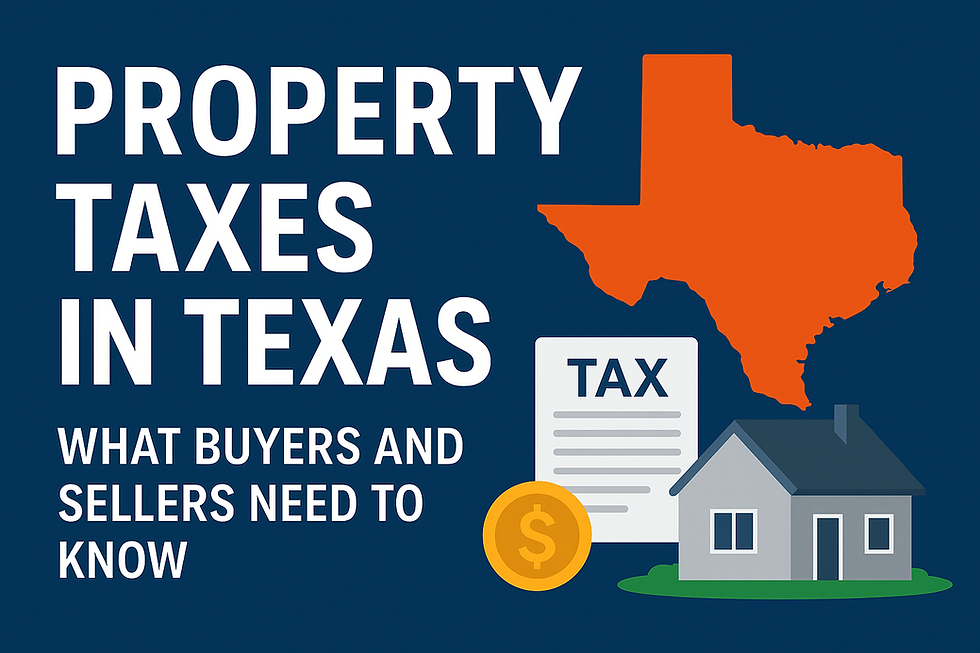Understanding Property Taxes in Texas: What Buyers and Sellers Need to Know
- monte1018
- Sep 10, 2025
- 2 min read
Updated: Oct 14, 2025

When buying or selling a home in Texas, many people focus on price negotiations, inspections, and closing costs—but property taxes are just as important. Texas doesn’t have a state income tax, so property taxes are one of the main ways local governments generate revenue. Because of this, Texas has some of the highest property tax rates in the country, and they can play a big role in both buying and selling decisions.
How Property Taxes Work in Texas
Property taxes in Texas are determined by:
Appraised Value – Each year, your county’s appraisal district determines the market value of your home.
Tax Rate – Local taxing entities (counties, school districts, cities, etc.) set tax rates.
Exemptions – Certain exemptions, like the Homestead Exemption, can reduce the taxable value of a home.
Your property tax bill = Appraised Value × Tax Rate – Exemptions.
What Buyers Should Look Out For
Escrow Accounts: Lenders often require property taxes to be included in monthly mortgage payments. Make sure you understand how much this adds to your payment.
Tax Rate Differences: Property tax rates vary widely between counties and even neighborhoods. Two similarly priced homes in different areas can come with very different tax bills.
Future Increases: Property values in Texas are reassessed annually, meaning taxes can rise as home values increase. Buyers should budget for potential increases.
Homestead Exemption: Once you purchase your primary residence, apply for this exemption to save on taxes.
What Sellers Should Keep in Mind
Prorated Taxes: At closing, sellers are typically responsible for property taxes up until the sale date. These are prorated between the buyer and seller.
Higher Tax Bills Can Affect Buyers: If property taxes are unusually high, it may impact how affordable your home looks to potential buyers.
Disputes and Appeals: If you believe your property has been overvalued, you can protest your appraisal. Sellers may consider appealing before listing to make the property more attractive.
Whether you’re buying or selling, property taxes in Texas should never be overlooked. Buyers need to understand the ongoing costs of homeownership, while sellers should know how taxes affect their net proceeds and the marketability of their home.
Working with a knowledgeable real estate professional can help you navigate these costs and avoid surprises at the closing table.
Let's talk soon!



Comments